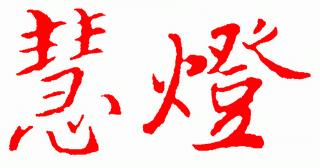Thoughts On The Pandemic
By Ven. Yin Chi
Shortly after we boarded the boat on our recent life-releasing cruise, participants at one table began circulating pictures of a baby. The photos quickly sparked some happy talk. The pleasure triggered by the start of a new life seemed to herald a lifetime of happiness.
The episode was a meaningful curtain-raiser for our life-releasing activity. The Dharma teaches us to be compassionate and advises us not to kill. It urges us to release otherwise doomed creatures so they have another chance to live. Many people are happy to participate in life-releasing events because these enable sentient beings to escape death and regain their freedom. Releasing life enhances our capacity for compassion. More importantly, it reminds us to be respectful of life and to treasure it.
The Buddhist view of equality and compassion is rooted in mutual caring, accommodation and understanding. By practicing such qualities, we can build a harmonious family and society, enabling every person to live in peace and security. To be caring of life means going beyond cultivating harmony among individuals to recognizing that the lives of all sentient beings are precious.
We need to be concerned about the environment too, taking care not to despoil nature recklessly. In fact, our natural environment is inextricably linked with our lives. All life forms are interrelated and depend on one another for their survival. The richer and more developed a society becomes, the more frequent are the warnings from its scientists and environmentalists. People over-fish and slaughter too many animals for food, and they cut down too many trees and waste too many resources … Our ecological profligacy has led to the frequent appearance of rare natural and climatic catastrophes, as well as the mutation of viruses.
These developments are seriously threatening humankind. Even as the World Health Organization was fretting about avian influenza, human swine flu was quietly breaking out in Mexico and spreading around the world. Hong Kong had its first imported case in early May and by June, the virus was spreading locally. Though the virus is not highly lethal, it has made everyone anxious. Screening was tightened at immigration points and schools were closed. Countries with confirmed cases instituted many combative measures. This is because everyone recognized the sanctity of life. No one wants to let down their guard.
We experience rough or smooth circumstances in different times. Because the ease or difficulty of a given period is the result of our collective karma, we can work together to change it. “In the world, the Dharma is of the world,” it is said. As we face the uncertainties brought about by the current pandemic, we should focus our efforts on the following areas:
1) Be civic-minded and make a contribution. Besides minding our personal hygiene, we should consider the community’s interests and do our part. We will serve ourselves as well as others by observing practices to keep the pandemic at bay. If we suspect we might have some symptoms, we should wear a facemask and seek medical treatment promptly. Think of others – don’t leave home unnecessarily, so as to minimize the chances of spreading the virus.
2) Resolve to undertake a vegetarian diet; refrain from killing and release life. We all want to avoid getting sick. Who doesn’t want to be healthy? A proverb notes that “illness enters through the mouth.” Isn’t this a good time to reflect on what and how we eat? We cannot require that Buddhists become vegetarians. Even so, it is widely recognized that “less meat, more vegetables” is a recipe for health.
As Buddhists, it would of course be best if we could adopt a vegetarian diet. Those unable to do so should at least eat “clean” meat and consume less meat and more vegetables. So long as our diet is balanced, we will naturally be healthy. Nowadays people eat too much meat and accumulate much negative karma. Under the present circumstances, we could resolve to eat vegetarian for a month, or at least six days a month. Then we should dedicate the merit from not killing sentient beings and eating their flesh to the victims of human swine flu, wishing them a speedy recovery as well as an end to the pandemic itself. That would be best.
3) Expose ourselves more to the Dharma to purify ourselves spiritually. A pro-active, correct view of life is a prescription for avoiding illness and strengthening ourselves. Amid the gloom fostered by the global financial crisis and the flu pandemic, everyone hopes to be able to remain in good spirits. By increasing our exposure to the Buddha’s teachings, we will surely experience revelations through the wisdom in the Dharma. Our vexations will be transformed into peace of mind.
We are liable to encounter difficult circumstances at any time. Faced with the uncertainties of the pandemic, we should actively and courageously practice the foregoing three points: exercise civic-mindedness, nurture compassion with a vegetarian diet and refraining from killing, and cultivate wisdom by exposing ourselves more to the Dharma.
Where there is crisis, there is also opportunity, especially if the entire population unites to reflect on the crisis. If we decide to undertake meritorious actions, we will surely pass safely through all dangers.
